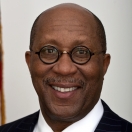
Ed. note: This is cross-posted from ustr.gov.
As the nineteenth International AIDS Conference kicks off in Washington, DC, experts and activists from around the world are bringing together their best ideas to fight this disease. As part of this conversation, some are taking a careful look at trade policy issues and so is the Obama Administration.
Stakeholders on all sides of this issue recognize the need to balance trade’s long-standing role in the promotion of pharmaceutical innovation through intellectual property rights with the imperative to ensure access to life-saving medicines for people around the world.
The Obama Administration is committed to developing policies that do both. We believe that we can increase access to medicines and support innovation for the development of new and improved drugs for HIV/AIDS and other diseases. And with input from the public, global health and development experts, innovative and generic drug companies, and Federal agencies that serve these sectors, the Office of the U.S. Trade Representative is working in the Trans-Pacific Partnership (TPP) – a major Asia-Pacific trade agreement now under negotiation – to get this balance right.
We all know that innovation is essential to create new tools in the fight for global health, and the President’s Emergency Plan for AIDS Relief (PEPFAR), the Global Fund for AIDS, TB and Malaria, FDA, NIH and U.S. generic and innovator companies with voluntary licensing programs are demonstrating that innovation and access can thrive together with the right policies.
We have never wavered in our support for the Doha Declaration on Trade-Related Aspects of Intellectual Property Rights (TRIPS) and Public Health, including affirming that the TRIPS Agreement can and should be interpreted and implemented in a manner supportive of WTO members' right to protect public health.
We have underscored this priority in the TPP, and stated clearly that the “TPP countries have agreed to reflect in the text a shared commitment to the Doha Declaration on TRIPS and Public Health.”
Furthermore, in the TPP we are seeking to expand U.S. exports of both innovative and generic drugs in a way that drives access to medicines in the developing world while promoting innovation.
It is a difficult balance to strike. We have heard a great deal of feedback on our early proposals -- including on the treatment of lesser-developed countries, such as Vietnam -- and are carefully reflecting upon that feedback.
We want to get the balance right and to work with the public and with our trading partners to get there. This process will take some time and, as we work over the course of the next several months, we will be very interested in additional input.
Trade alone can’t provide access to medicines. So these trade policies we are refining will go hand in hand with other approaches by the Obama Administration to encourage pharmaceutical innovation and promote access to medicines. Here are some great examples of what’s going on across the government in this regard:
- Anti-retroviral drugs purchased by PEPFARare now over 98 percent generic and the Global Fund to Fight HIV/AIDS, TB and Malaria, to which the U.S. is the largest donor, also procures a high percentage of effective and low cost generic medicines to treat HIV/AIDS.
- Innovative approaches by the U.S. Food and Drug Administration (FDA) to provide tentative approval for generic drugs have contributed to PEPFAR’s success. This has led to nearly 150 antiretrovirals being made available, at lower cost; as a result, the U.S. will directly support life-saving antiretroviral treatment for 6 million men, women and children worldwide by the end of 2013.
- The U.S. National Institutes of Health (NIH) and co-patent owner the University of Illinois at Chicago were the first patent holders ever to share their intellectual property with the Medicines Patent Pool Foundation. President Obama leveraged our contribution and last year along with the other G-8 Leaders called on all rights holders – public and private – to consider entering into license agreements with the Foundation. USTR supported that call by citing this kind of patent-sharing practice in its 2012 “Special 301” Report.
- The NIH successfully licensed a technology developed by the FDA to the international non-profit PATH to develop MenAfriVac, a lifesaving meningitis vaccine for sub-Saharan Africa. The Serum Institute of India Limited now produces that vaccine at low cost. Over 20 million people have been vaccinated in Africa’s meningitis belt at below USD $0.50 because of this effort. To replicate this success and expedite technology transfer to not-for-profit institutions with a demonstrated commitment to global health, the NIH developed a model licensing agreement which was subsequently adopted by the G8.
- The U.S. Patent and Trademark Office (PTO) launched Patents for Humanity to reward companies that use patented technologies for humanitarian endeavors. Winning participants will receive vouchers for accelerated processing for select matters in front of the PTO.
With a full complement of efforts, the Obama Administration intends to ensure that access to medicines is as robust as in prior administrations, and to ensure that important programs like PEPFAR remain effective. We’ll continue to work with you to deliver on that promise.
Ambassador Ron Kirk is the United States Trade Representative.


